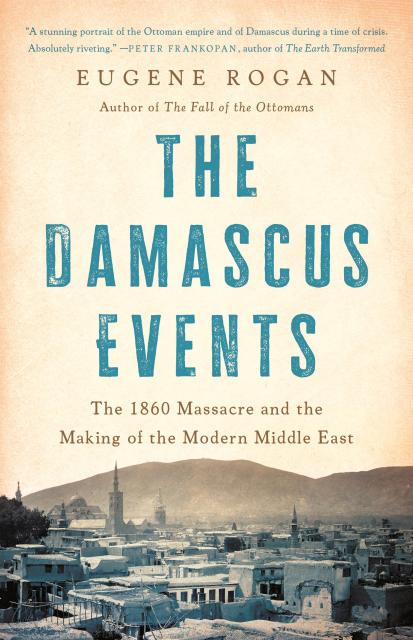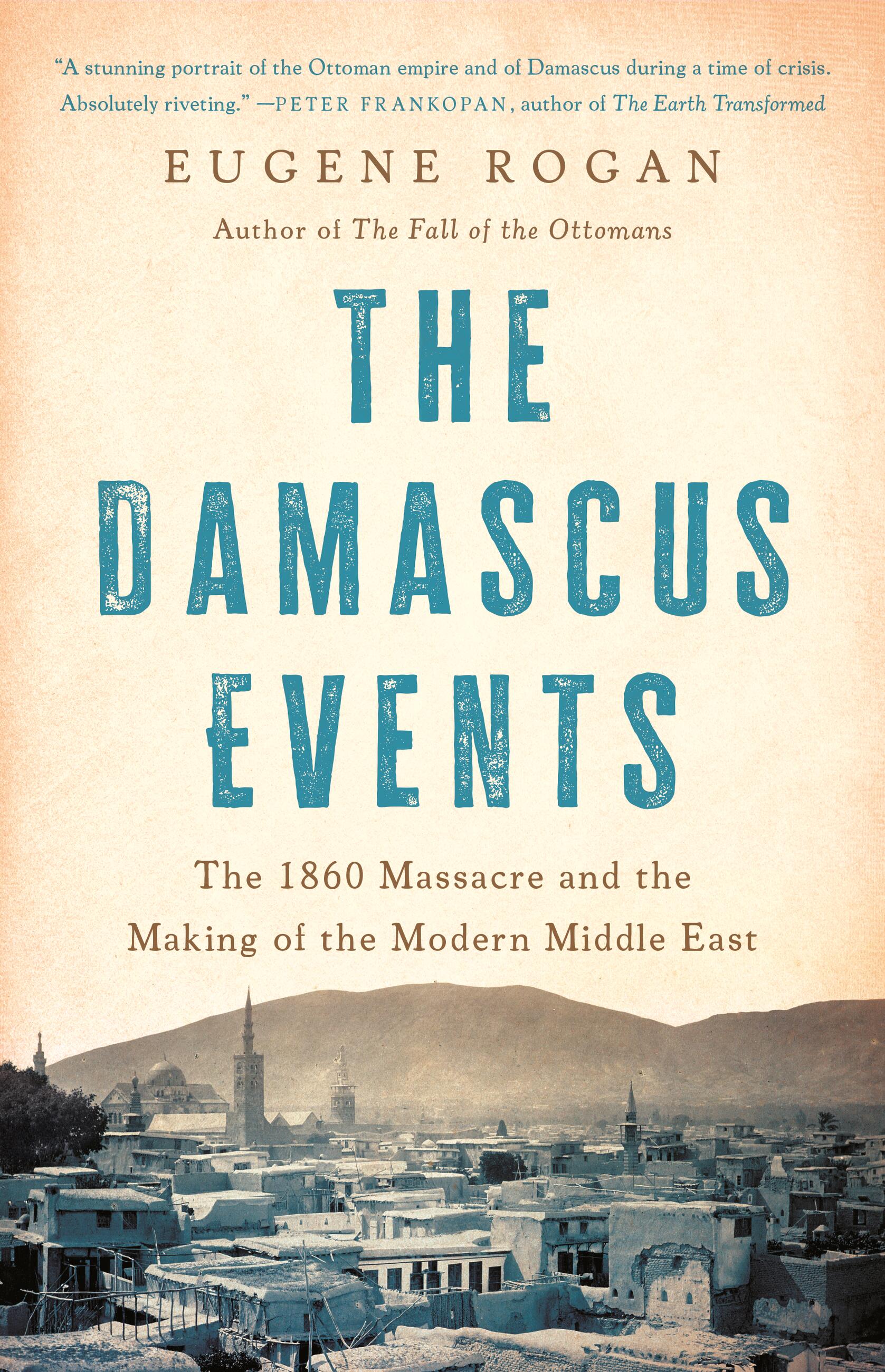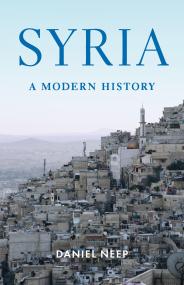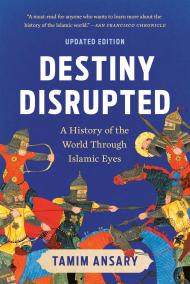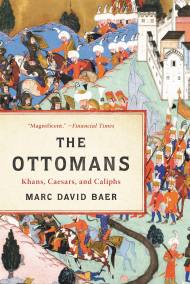The Damascus Events
The 1860 Massacre and the Making of the Modern Middle East
Contributors
By Eugene Rogan
Buy from Other Retailers:
- On Sale
- May 7, 2024
- Page Count
- 400 pages
- Publisher
- Basic Books
- ISBN-13
- 9781541604278
On July 9, 1860, a violent mob swept through the Christian quarters of Damascus. For eight days, violence raged, leaving five thousand Christians dead, thousands of shops looted, and churches, houses, and monasteries razed. The sudden and ferocious outbreak shocked the world, leaving Syrian Christians vulnerable and fearing renewed violence.
Drawn from never-before-seen eyewitness accounts of the Damascus Events, eminent Middle East historian Eugene Rogan tells the story of how a peaceful multicultural city came to be engulfed in slaughter. He traces how rising tensions between Muslim and Christian communities led some to regard extermination as a reasonable solution. Rogan also narrates the wake of this disaster, and how the Ottoman government moved quickly to retake control of the city, end the violence, and reintegrate Christians into the community. These efforts to rebuild Damascus proved successful, preserving peace for the next 150 years until 2011.
The Damascus Events offers a vivid history, one that masterfully uncovers the outbreak of violence that unmade a great city and examines the possibility, even after searing conflict and unimaginable tragedy, of repair.
Genre:
-
A Financial Times Best History Book of 2024
A Prospect Magazine Best Book of 2024 -
"A surprising and enlightening account of how order was restored to the city after an eruption of violence in 1860... accessible, enlightening and ultimately surprising account of an episode of which most western readers will be unaware."Financial Times
-
"An exemplary study."Financial Times
-
"Rogan zooms in and brilliantly captures the tragic outcome of this struggle."History Today
-
"The Damascus Events is a chilling, heartbreaking and terrifying account told masterfully by Eugene Rogan that leaves the reader with a sense of the fragility of inter-communal relations in historically mixed cities like Damascus."The New Arab
-
"A magnificent new book...[The Damascus Events] offers a message of hope and humanity, and a lesson about the capacity of fractured societies to reconcile and rebuild."Project Syndicate
-
"A propulsive account...A harrowing piece of storytelling with enormous insight, this is a must-read for Middle East history buffs."Publishers Weekly, Starred
-
“A highly readable, indeed forensic analysis of the 1860 Damascus Events…. The greatest value of this book today, given the unconscionable number of deaths in the ongoing Gaza war…is to provide a practical model for Israeli, Palestinian and Syrian politicians for reconstructing the fabric of a shredded society.”Literary Review
-
“Compelling and authoritative, powerful in narrative, and filled with new revelations, this book offers a superb account of the 1860 Damascus massacres—much neglected nowadays but central to the creation of the modern Middle East.”Simon Sebag Montefiore, author of Jerusalem
-
“In the hands of the distinguished historian and master storyteller Eugene Rogan, an incident of communal violence in Damascus in 1860 is at once an evocation of the vanished world of the Ottoman empire and an ominous foreshadowing of the communal violence tearing apart the Middle East of today.”Margaret MacMillan, author of War
-
“This book stands out for its impeccable scholarship, gripping narrative, and captivating prose. There is a great deal of new material here that not only brings events alive, but also leads to fresh assessments of one of the most momentous events in modern Arab history. Rogan uses the full panoply of primary sources in French, Ottoman Turkish, and Arabic to brilliantly illuminating effect. A remarkable book by a remarkable historian.”Avi Shlaim, author of The Iron Wall
-
“Rogan’s book is a much-needed addition to the Middle East library, covering the monumental events of 1860 whose repercussions can be directly linked first to the Lebanese civil war that erupted in 1975 and then to the Syrian conflict that started in 2011. The events of 1860 wiped out an entire neighborhood in Damascus and killed over 5,000 Christians; creating a new Muslim elite for Damascus; and triggering a series of upheavals that accumulated with the Great Revolt of 1916, which eventually brought down Ottoman rule in Syria by the end of World War I. Although the 1860 massacres have been studied before by both Western and Arab academics, this is the first book that delves into the papers and dispatches of Mikhayil Mishaka, a firsthand survivor who was a practicing doctor also serving as the US vice-consul in Damascus in 1860. The last serious approach in English at understanding what happened in Damascus in 1860 is now thirty years old, making it academically outdated. And it doesn’t delve into the US archives, concentrating mainly on dispatches from European consulates and nineteenth-century memoirs of Syrian eyewitnesses. This is what makes Rogan’s book fresh, balanced, and thought-provoking; a must-read for historians, scholars, and Syriatologists.”Sami Moubayed, chairman, the Damascus History Foundation
-
“Rogan once again proves himself the leading public historian of the Middle East. In sober yet elegant prose, Rogan peels back layers of historical cause to explain the descent of the ancient city of Damascus into evil in 1860—and its redemption through the wise administration of Ottoman reformers. The trigger for genocidal violence against Christians was the global wave of democratic reform. That year, even as the United States tilted toward civil war over the prospect of racial equality, the Americans’ vice consul in the ancient city trembled at his own government’s promise of equality to Christians. The city’s Muslim population rose in near-genocidal violence, pulling the vice consul from his home and burning down the Christian quarter. Never before had the city witnessed such mass hatred, a product of radical social change in the modern era. Never before in English has this crucial and neglected story been told so well. The mass murder of Christians in 1860 Damascus was, Rogan argues, a precursor to the sectarian violence that has engulfed the Middle East in the past century.”Elizabeth Thompson, author of Colonial Citizens
-
“In his latest book, The Damascus Events, the great historian Rogan brings to life the personal and the global in a masterful analysis from which scholars and general readers will benefit immensely. It focuses on a major outbreak of communal violence in 1860 Damascus, makes us appreciate its relevance for competing local and regional forces then and now, and conveys the fragility and yet resilience of our troubled Middle East. Exceptionally informed and written with delicacy and incisiveness, the book draws us into the life of its central character and the world of transition he lived in. We are left with the possibilities of hope for the Middle East, despite some of its worst happenings.”Leila Fawaz, Tufts University
Formats and Prices
Price
$33.00Price
$42.00 CADFormat
Format:
- Hardcover $33.00 $42.00 CAD
- ebook $19.99 $25.99 CAD
- Audiobook Download (Unabridged) $27.99
